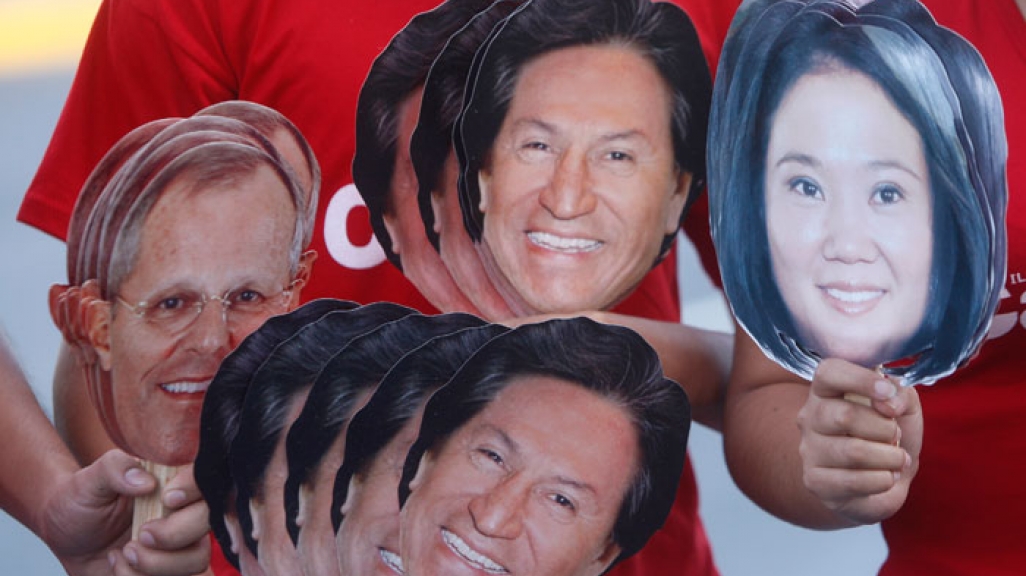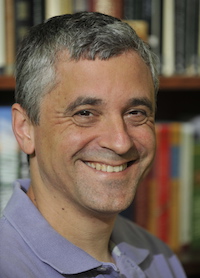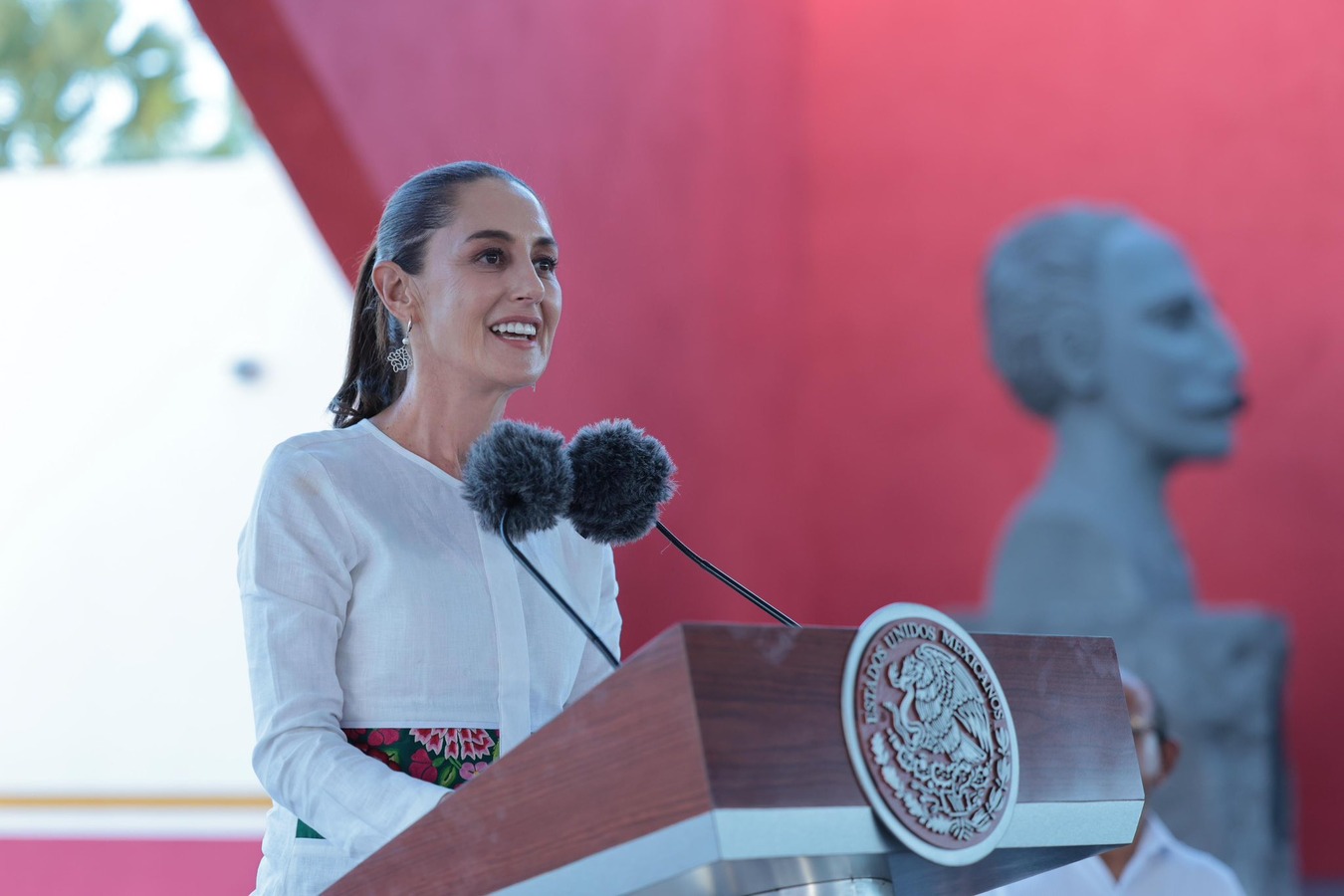Explainer: Who's Running in the 2016 Peruvian Presidential Election?
Explainer: Who's Running in the 2016 Peruvian Presidential Election?
Pollsters expect Keiko Fujimori to win the April 10 vote, but a runoff in June could be neck and neck.
Updated April 8 — On April 10, Peruvians will vote for their next president, who’ll replace the outgoing Ollanta Humala. Voting is compulsory in Peru, so turnout runs high among the country’s 20 million registered voters. Still, some 70 percent of voters say they’re dissatisfied with the candidates running, and many voters make up their minds at the ballot boxes. This year, as in the United States presidential race, being a political outsider is an asset and propelling newcomers against frontrunner Keiko Fujimori. But a series of elections board rulings have disqualified two top candidates and altered the race’s landscape. Presidents in Peru can be reelected, although not to consecutive terms.
Also on April 10, Peruvians will cast votes for all 130 seats in the country’s unicameral legislature, as well as its representatives to the Andean Congress. For all races, if no single candidate receives more than 50 percent of the vote, a runoff will be held between the top two candidates on June 5. The newly elected officials will take their oaths of office in late July.
Topics:
- Keiko Fujimori. The runner-up to Humala in the last presidential election in 2011, Fujimori has been the frontrunner for the 2016 race since the summer. But the latest polls show her support slipping in recent months. She is the eldest child of jailed ex-President Alberto Fujimori, and, in the wake of her parents’ divorce, served as Peru’s first lady while in her 20s from 1994 through 2000. The top reason her supporters plan to vote for her, per a February Ipsos poll, is that she’s a woman (35 percent), followed by the 23 percent who say she’d be the best at reducing crime.
- Julio Guzmán. Guzmán was a newcomer to politics and among the frontrunners when Peru’s National Elections Board, known as the JNE, disqualified him from the race in early March over an administrative flap (see below). He broke into the top five candidates in polls only in January. At the time of his disqualification, support for the technocrat, who previously worked for the Inter-American Development Bank, had gone up to a firm hold on second place at just under 20 percent of voter intent. Forty-six percent of Guzmán’s supporters said they supported him because he was new.
- Pedro Pablo Kuczynski. Also known as PPK, Kuczynski is an economist who’s served as prime minister, as well as minister of finance and of mining and energy during previous administrations. He’s also worked for the World Bank and in the private sector. Among his supporters, 41 percent support him because they say he’s the best candidate to improve the economy, while 32 percent appreciate that he has experience. PPK came in third in the 2011 first-round presidential race with 18.5 percent of votes. After polling in second for much of the race last year, with support as high as 16 percent in December, he dropped to third place with 9 percent in March, but rebounded back to 16 percent as of April 1 in the wake of Guzmán’s exit from the race. He has the lowest unfavorable ratings of any top candidate.
- César Acuña. The professor, former governor, and congressman from the northern coastal state of La Libertad was also disqualified by the JNE at the same time as Guzman, albeit on different charges. Acuña made his wealth as the owner and founder of three private universities; he also owns a soccer club. The February Ipsos survey had him polling at around 6 percent.
- Alan García. Previously president from 1985 to 1990 and again from 2006 to 2011, García has the lowest levels of support among the top candidates, with only 5 percent of voters saying they would definitely vote for him, while 73 percent say they definitely would not.
- Verónika Mendoza, after polling at around 4 percent, is the latest to rise in the polls, and was in a statistical dead-heat with PPK for second place one week before the April 10 vote, giving her a shot at making it into a potential runoff with Fujimori. A left-leaning congresswoman, she’s come under criticism for statements deemed sympathetic to the populist government in Venezuela, although she’s made a point to say she condemns human rights abuses and authoritarianism in that country. She’s one of the few candidates who has not been linked to any charges of corruption during the race.
- Others candidates. Daniel Urresti, a former general and, later, minister under Humala and the latter’s pick as his successor campaigned while on trial for murder before dropping out. Alejandro Toledo, also a former president (2001–2006), has come back from the academic speaking circuit to run but is polling under 2 percent.
Polls
While Fujimori has led polls throughout the campaign with support consistently above 30 percent, first Guzmán’s and then Mendoza’s respective rises since the beginning of the year have caused stirs. Most polls—including Ipsos Apoyo, GfK, and CPI—show Fujimori with at least a ten-point lead over PPK and Mendoza for the first-round vote. But, in the likely event of a runoff, an April 1 Ipsos poll projects PPK could edge Fujimori by two points (43 to 41 percent), while Mendoza would trail her by six (39 to 45 percent). This survey has a 2.3-percent margin of error.
History is on Fujimori’s side. Peru’s last three elected presidents all were the runners-up in the preceding presidential contests. Indeed, most Peruvians see her as inevitable: 54 percent think she’ll win the election regardless of their personal pick.
The election was upended after Peru’s highest elections body ruled that both Guzmán and Acuña are disqualified from running, for separate reasons. The JNE said Guzmán did not properly file with his party when registering his candidacy. The board investigated Acuña after a video surfaced in which he offers money for votes in a Lima market. On March 4, a special committee barred the two candidates from running, which both appealed. In the following days, the JNE denied their appeals, upholding the special committee ruling, as well as their petitions for extraordinary recourse, leaving both out of the race. Guzmán has appealed the international community, notably the Organization of American States, to speak out against his exclusion.
The board also investigated Fujimori in late March on charges of vote buying, but she was cleared of wrongdoing in the matter. On March 31, the board opened an inquiry against PPK on the same charge.
The first debate took place on February 11 and 12 in Lima.
A second debate took place on Sunday, April 3, one week before the election. At it, Fujimori signed a pledge saying she would avoid the authoritarian style rule of her father.
- El Comercio's Elections 2016 page
- La República’s Elections 2016 page
- Reuters’ Peru coverage
- Peru Reports’ election coverage
- Peru’s National Elections Board
- Fujimori: campaign site, Twitter (@KeikoFujimori), and Facebook
- Kuczynski: campaign site, Twitter (@PPKamigo), and Facebook
- Mendoza: campaign site, Twitter (@Vero_Mendoza_F), and Facebook
- García: campaign site, Twitter (@AlanGarciaPeru), and Facebook
- Guzmán: campaign site, Twitter (@JulioGuzmanperu), and Facebook
- Acuña: campaign site, Twitter (@CesarAcuñaP), and Facebook









